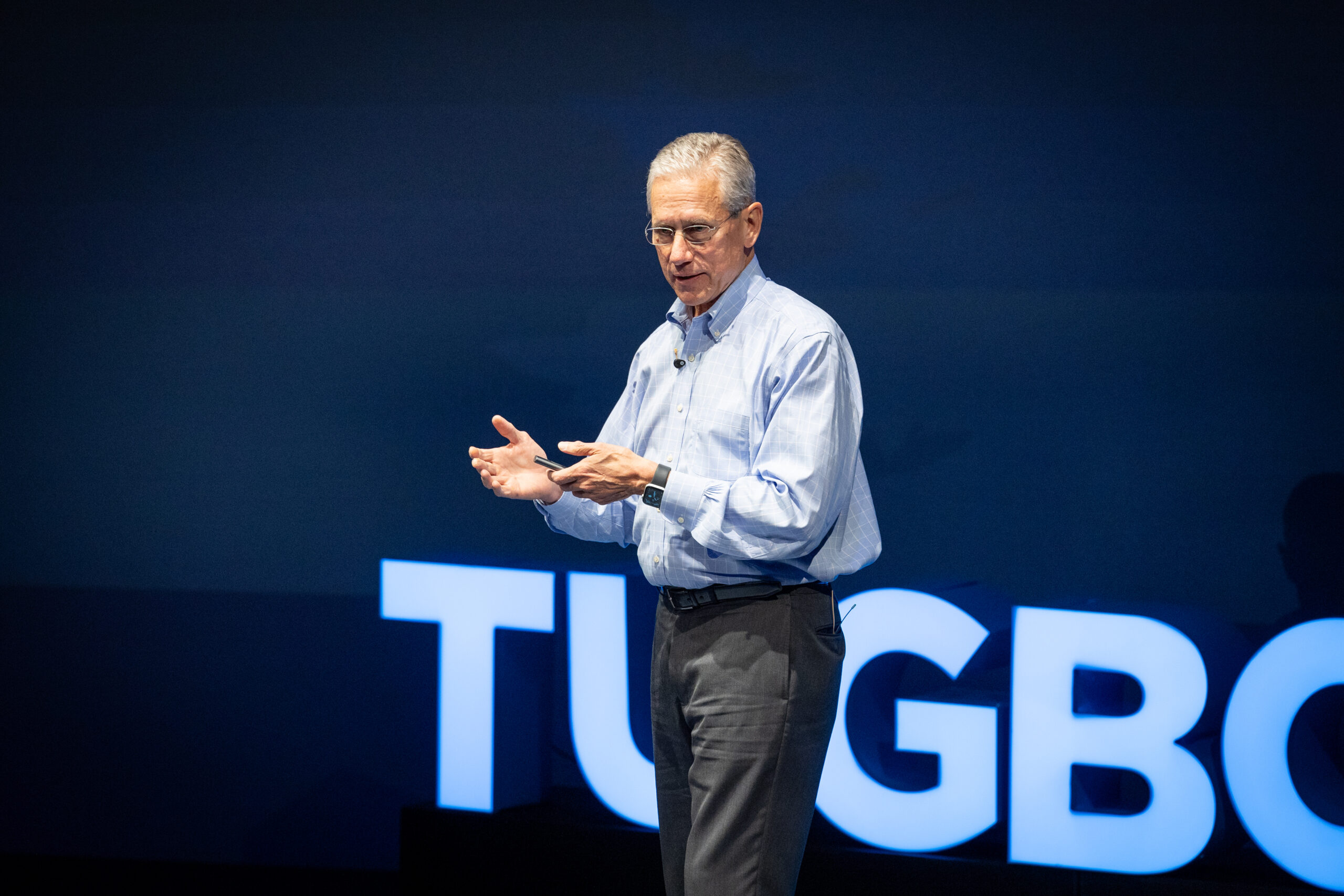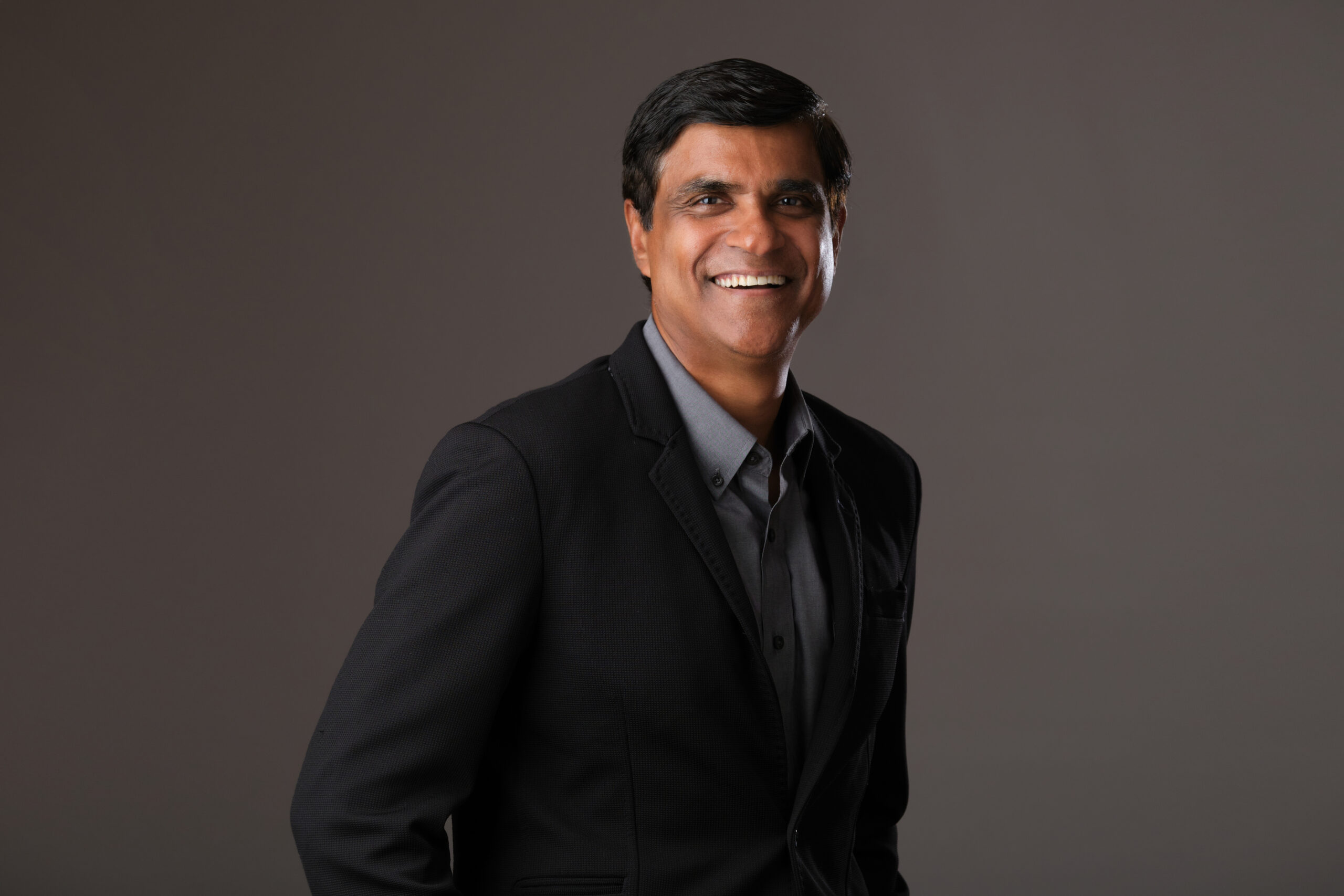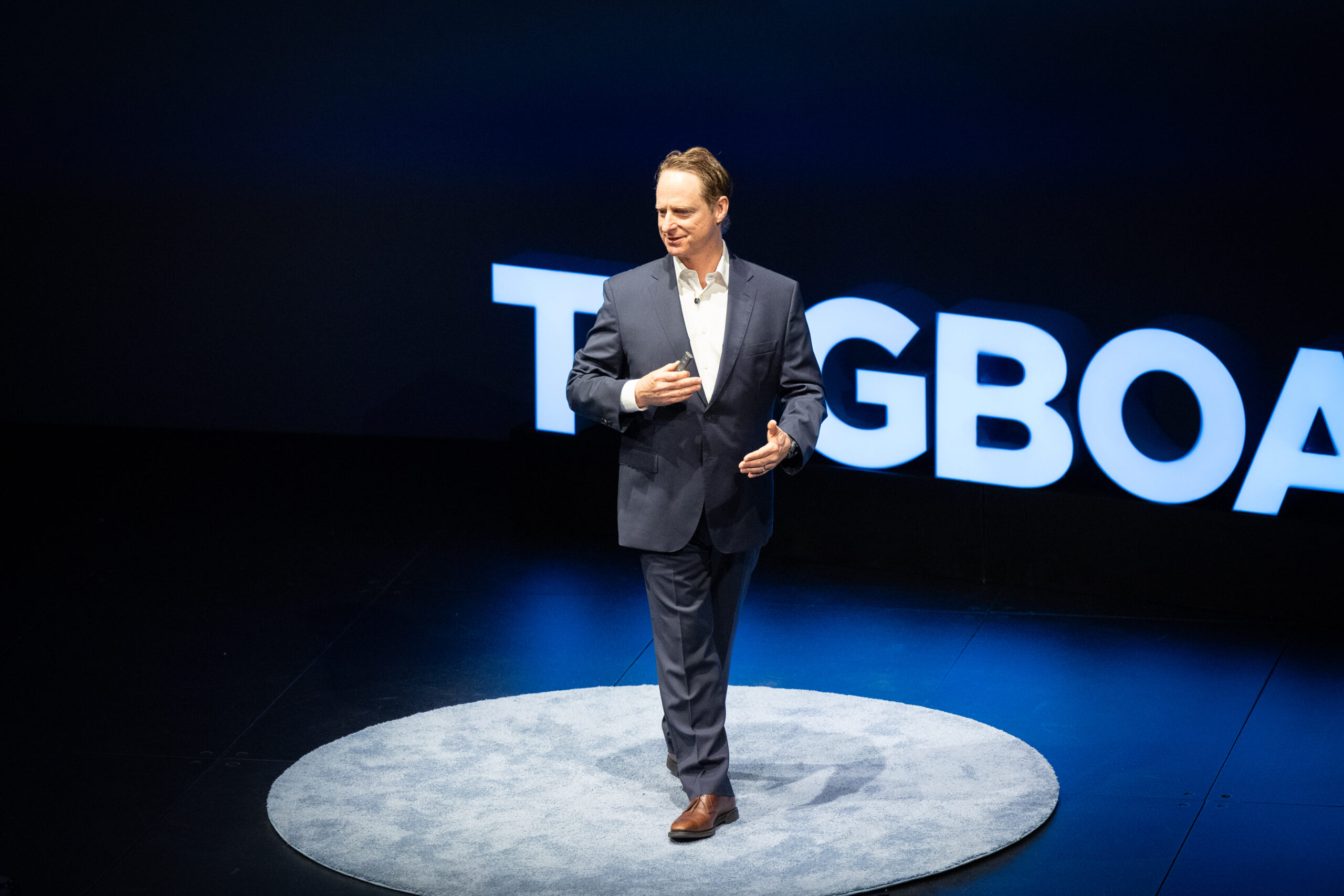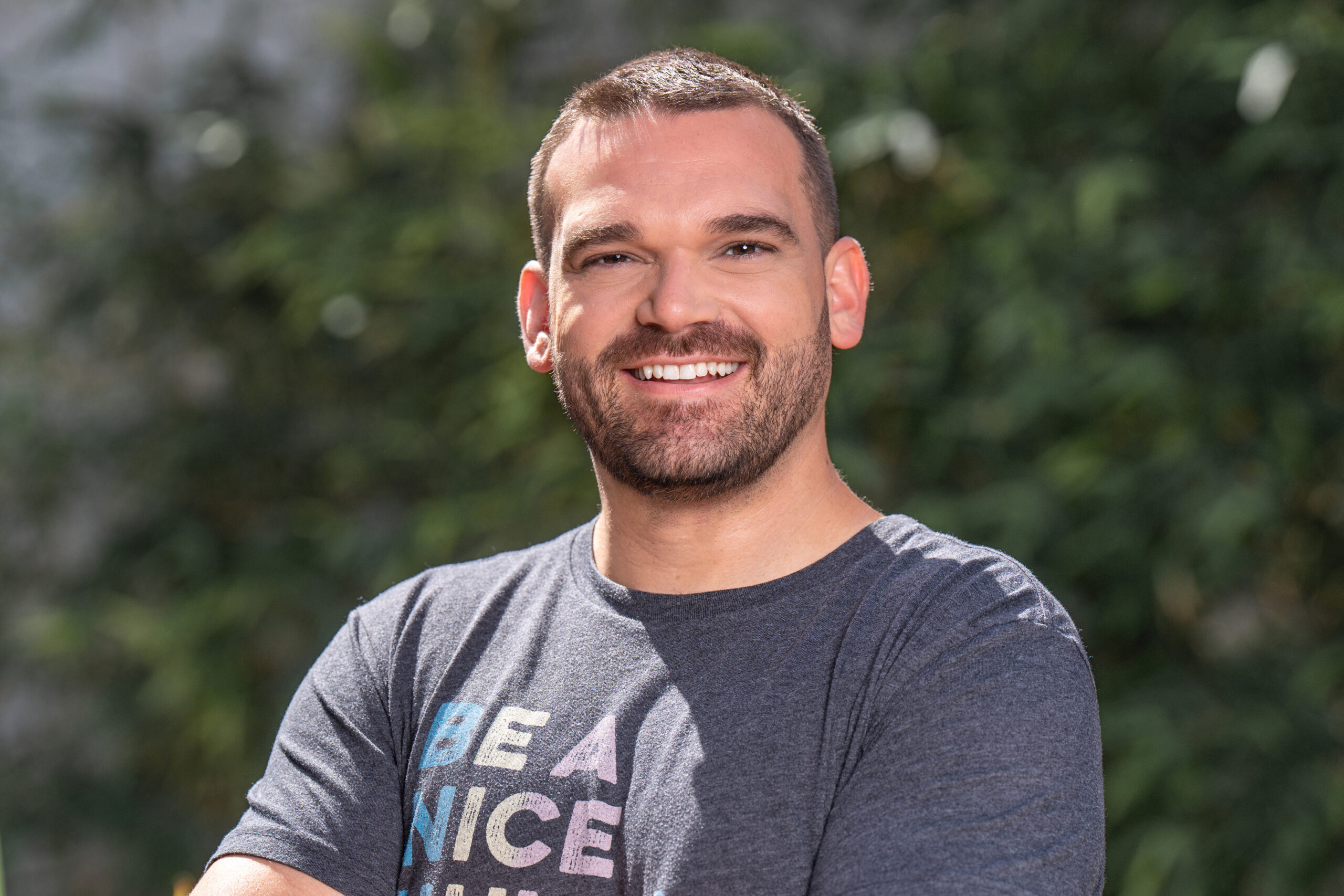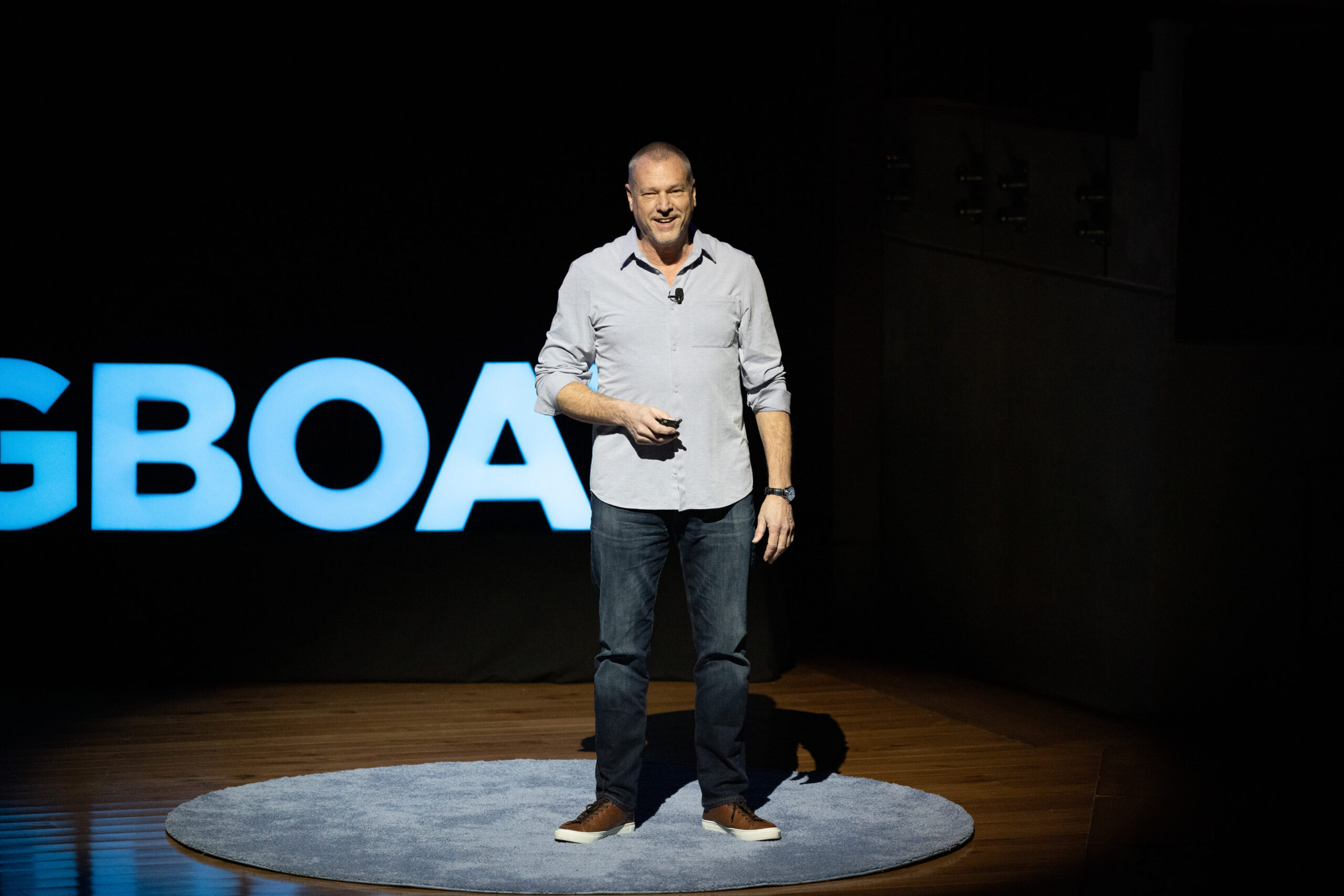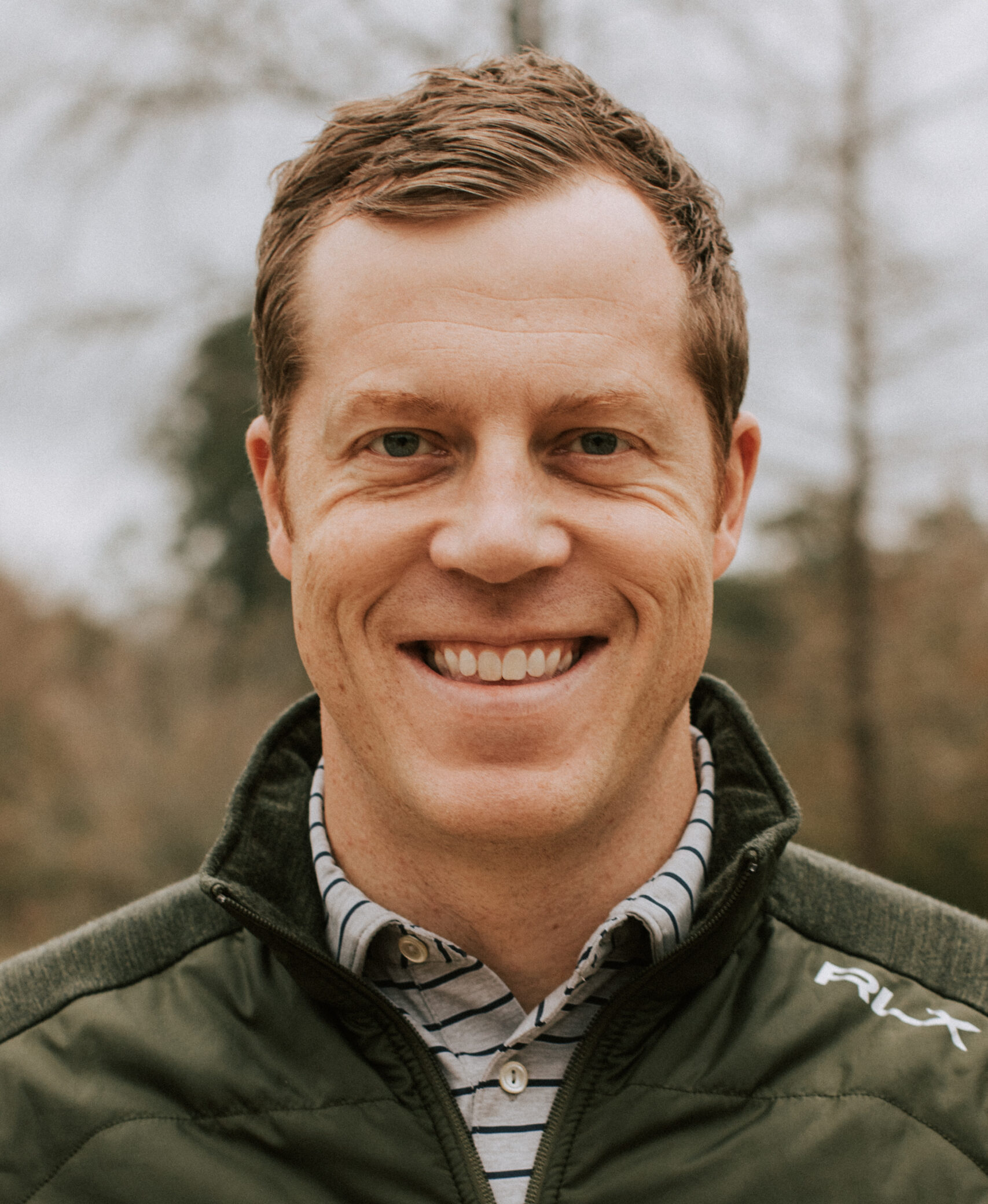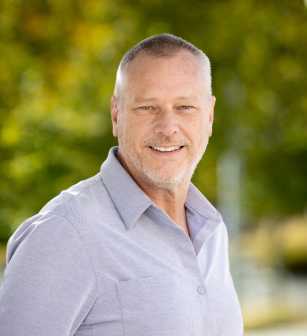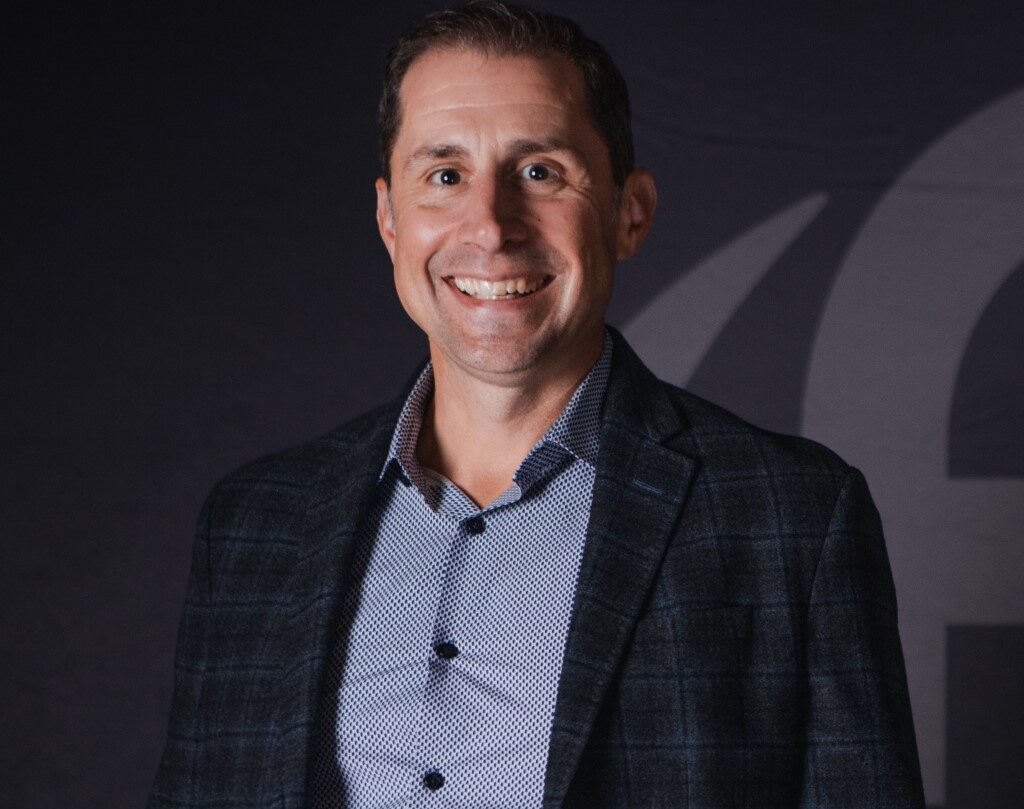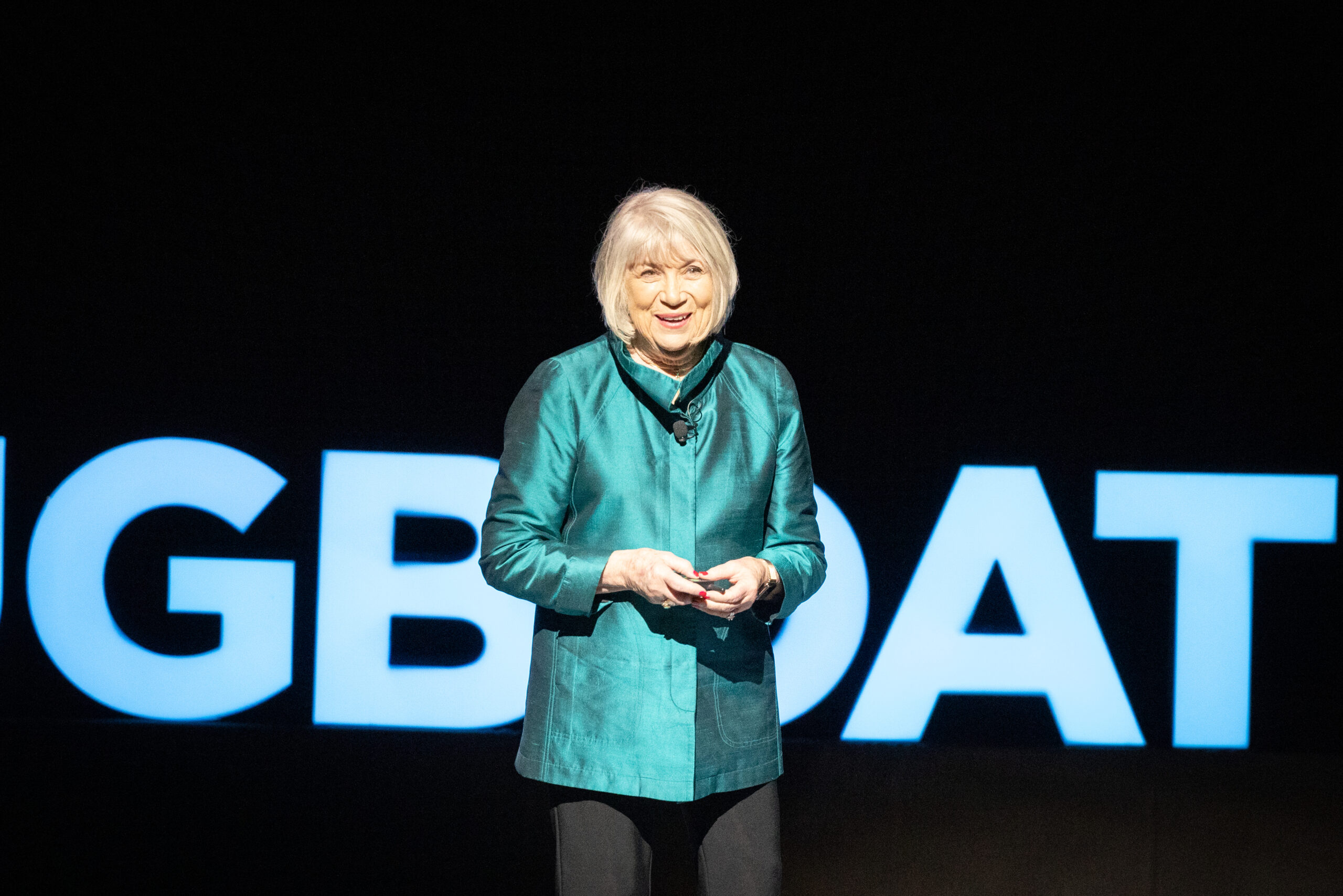Innovating for the Long Term: 1728-2023
Hollingsworth & Vose is the oldest company in Tugboat Institute® membership; they were founded nearly 300 years ago. In their early days, they made paper for customers including Ben Franklin and Paul Revere. Today, they are a global leader in filtration and energy storage systems, and their customers include Tesla and Elon Musk. It goes without saying that to survive such a journey, innovation must be the order of the day.
In this Tugboat Institute talk, the 7th generation leader and current Board Chair of Hollingsworth & Vose, Val Hollingsworth, shares highlights from his family’s company’s incredible journey. He also gives us insight into the spirit of innovation that has driven the company since its founding, and allowed it to remain relevant and a market-leader through sweeping changes to every aspect of our world.
Watch and be inspired to up your game on the innovation front and ensure your survival for 100 years or more.
Lead with Kindness and Optimize Rather Than Maximize Profits
I spent my career working for a large, multi-national, public company, until very recently. It was a very positive experience and shaped me into the person and leader I am today. Five years ago, driven by a desire to lead and grow a smaller, private business by focusing on people, I left this large company and became CEO of Etnyre International, a smaller, private, family-owned, American company. With the help of a great team, a great board, and the family itself, in four years we have grown Etnyre by more than 50% in revenues. As I reflect on this, I feel that it has been a profound learning experience; however, this achievement and my own learning were not centered around how to grow a company or how to run a business. They were around the expression of kindness and improving the lives of people by doing good.
Many business leaders are aware of Milton Friedman’s 1970 New York Times article, A Friedman Doctrine. In it, he states that “there is one and only one social responsibility of business—to use its resources and engage in activities designed to increase its profits so long as it stays within the rules of the game, which is to say, engages in open and free competition without deception and fraud.” We can argue about the “only one social responsibility” part of this statement, and many have, but less attention gets paid to the second part, “so long as it stays within the rules of the game […] without deception and fraud.” This is especially true since the early 1980s, when the common understanding of this doctrine focused primarily on shareholder return at all costs. Jack Welch of General Electric epitomized this kind of leadership, and was in fact, declared the Manager of the Century by Fortune magazine. His tactics certainly did maximize shareholder return, but with a leadership style that was not compassionate and at the expense of tens of thousands of jobs.
Personally, I disagree with this message of Friedman’s doctrine and with leaders who embodied it or continue to do so. Profit is important, and undeniably, no company, private or public, should de-prioritize it. What I believe is that the primary focus of a company should be taking care of all its stakeholders, rather than just its shareholders. In addition to its shareholders, the four main buckets of stakeholders for any company are its customers, members (employees), suppliers, and community. And when you take care of these four groups, the natural result will be of maximum benefit to shareholders as well.
This philosophy and focus on kindness and doing good was welcomed by all at Etnyre. Together, we worked on transforming our culture to focus on all our stakeholders. This transformation led to significantly improving our metrics with respect to safety, customer delivery performance, quality, and other business measures. This in turn enabled us to deliver strong financial performance and provide very good compensation and benefits for our members and strong dividends for our shareholders in a period of high uncertainty, especially during the global pandemic.
As we continue to evolve as a company, we are learning and implementing new ideas. Influenced by Jim Collins’ Good to Great, we created our own flywheel. In the center, we placed our Purpose, which is Improving Lives. This is why we exist and why we do what we do. Surrounding this, the perimeter of the flywheel shows how we do this. We design and build superior products and components, which allows us to attract customers and distributors. With our customers and distribution, we work to provide strong support and therefore build brand loyalty. This in turn leads to optimizing (not maximizing) profits. These profits allow us to reinvest in our business and improve more lives, internally and externally.
The point is that even while focusing on our Purpose and not on Profits, we are naturally optimizing profits and returning great results. Now, what does optimizing profits really mean?
Here is an example of this. We have a significant backlog of customer orders in our company today. We could easily move up to 55+ hour workdays for our members should we want to fulfill all the orders. We would produce more and we would maximize profits, at least in the short-term. However, that’s not a decision we are making. Our factories do a lot of heavy metal fabrication, which is hard, exhausting work. It’s physically draining, and we have to think about the safety of our members. When people work more than 40-45 hours a week, they lose judgment, are unable to focus on quality, and more critically, tend to get hurt much more often. Additionally, their family lives suffer, they become unhappy, relationships weaken both at home and work, and eventually, they quit, thereby increasing turnover and impacting the morale of the team. Given this causation, very deliberately and intentionally, we have chosen to keep work hours down and have accepted lower profits instead in the short term. We believe that in the long term, for all the reasons above, treating our people with kindness will ultimately yield better results across every measure.
Besides intentionally limiting our work hours, we have also introduced many new efficiencies. These include redefining our business processes and implementing lean manufacturing. This initiative was not driven by aspirational profits, but rather by a desire to make our people’s lives easier, to give them a greater opportunity to be productive and voice their opinions. These introductions have led to significant improvement in business performance and have allowed us to grow both organically and through acquisitions.
To return to my original statement about my greatest learning at Etnyre, I have learned and proven that doing good with acts of kindness can go a long way. It can lead to greater success personally and professionally. Improving lives yield profits, which is a wonderful confirmation of my Evergreen® path.
Now, one may argue that this philosophy may be easier to implement in a private company versus a public one. To this I will say, unless you try, you wouldn’t know. I do recognize that decades of tacit agreement that business success and kindness are not appropriate partners may make that path very difficult in many public companies. However, that shouldn’t limit one taking a new direction. What is key is the belief and conviction in taking this path to make this world a better place for everyone.
On Time
At Tugboat Institute® Summit 2023, where we celebrated our ten year anniversary, CEO Dave Whorton shared a talk entitled On Time. Dave first set the context of human activity in the broad span of life on our planet; as a species, we have been around for an extremely short time. Then he zeroed in on the timeframe of business, since it truly came to exist. In the past couple centuries, as the pace of change and progress have accelerated, the timeframe of the Evergreen® company stands out as unique.
For a company with outside investors and owners, such as public companies and Venture Capital and Private Equity backed companies, try as they might, they cannot escape a short term mindset, as they must, over and over, ‘make the quarter.’ An Evergreen company, by contrast, can grow slowly, and therefore adhere to much longer timeframes. This long term mindset allows for the compounding not just of capital, but also culture, customer base, and more. Seen through this lens, time stands out as a primary strategic advantage of the Evergreen company.
Watch and learn how and why time is on the Evergreen company's side.
Partnering with Customers to Innovate and Thrive
If you are looking to stay relevant in the ever-changing tech industry, innovation is key. Too many tech companies begin with a great idea, have initial success, and then fade away as their product or service becomes irrelevant. Proctorio understands this well, as we had the right timing and product when we launched the first AI remote proctoring solution ten years ago. It was ground-breaking at the time, but we know we’d be long gone if we hadn’t found ways to stay relevant.
To keep our business flourishing, we believe in staying up with the times and listening to feedback from our users. Every successful company should make it a practice to do this, yet it is not the norm. This is why we launched Proctorio X, our user conference, in 2019. We have been iterating and growing it ever since (aside from a year off due to COVID).
Every year, we invite people to join us for an exclusive three-day event in beautiful, sunny Arizona. The idea is to create an atmosphere that expresses our culture and values. As an Evergreen® company, we aim to do everything possible to help our communities thrive. As such, we strive to be equitable and sustainable in all that we do. These are the two drivers that shaped our thinking as we built Proctorio X.
In order to get the right people in the room and ensure that they are engaged and ready to share, we knew we had to make the event special. Once a client receives an invite to the event and books their flight, we take care of the rest. This starts with the electric car service to the beautiful hotel, the curated meals, as well as the planned events. We also host a special event for the attendees’ ‘plus ones’ so they feel included. It’s our way of saying thank you for trusting Proctorio. The attendees are a mix of customers, vendors, and partners, who interact with our products and services from their own, unique perspectives. Many attendees work at universities worldwide.
Our goal at Proctorio X is to learn and grow as much as possible, and we can only do that when diverse thoughts and opinions come together. That’s why we offer many learning opportunities during the conference, including breakout sessions where attendees can engage with our team and products and brainstorm together.
For example, we host “Meet the Engineers” where our team can show how the product is evolving based on feedback. Our engineers and product designers are right there in the room, so people can ask any questions. To make it easier to find the person you want to speak with, we have a unique system where the Proctorio team wears a specific color t-shirt to represent their role in the organization. We tell everyone, if you have a question for someone in sales, look for a blue t-shirt. If you need to talk to an engineer, look for a red one.
One of the products that has evolved through this process is our alternate identity solution called GreenKey. This change grew out of a need we perceived that was on the rise; when a test taker is transitioning and needs to update their government-issued identity documents, the process can be difficult and time-consuming. This can cause problems for test takers trying to access exams under their dead names. However, with GreenKey, a multi-factor verification process, they can take exams without the worry of having proper government issued documents, all while protecting the integrity of the exam. Originally this product was just designed as a security solution for the Proctorio results center, protecting the security of the recorded exam content from unauthorized access. Based on feedback from clients, it was suggested at a Proctorio X event that the same multi-factor authentication could be used to speed up the test taker identity check process. GreenKey was born out of conversations with our clients and can be found on Amazon today.
Proctorio X is a substantial investment but it’s necessary for the improvement and development of new technologies in our company. At Proctorio, we go all in, leading with our values. We believe that finding ways to innovate, stay ahead of the curve, and be better than the competition is not just a goal; it is the key to our success.
Debunking Growth Myths
Before joining the team at Tugboat Institute®, Dr. Gary Kunkle spent many years consulting with companies, in the United States and abroad, on growth. Following a stint at KPMG and then as the leader of his own company in the Netherlands, Gary returned to the US to earn his PhD. He wanted to understand what truly drove company growth, since his experience had led him to believe the conventional wisdom had it wrong.
In this Tugboat Institute talk, Gary tackles several of the most pervasive myths around company growth - the factors that are most often trumpeted as the keys to successful growth but that have not, in his vast experience, proven to be true. His work is grounded in thorough and exhaustive data, and as he debunks each myth, he offers an alternative truth that can help get you on the path to sustained Paced Growth.
Watch and learn how to tweak your strategy to increase your chances of successful, long-term growth.
Tugboat Institute Summit 2023: Celebrating Ten Years
Ten years. Ten extraordinary years. Last week, in Sun Valley, Idaho, Tugboat Institute® members gathered to celebrate ten years of Tugboat Institute and the Evergreen® movement. Our week together week gave us the opportunity to pause and reflect on what we, as a community, have built together in this time. It was powerful, thought-provoking, and joyous; we have an enormous amount to celebrate.
As we always do when we gather, first and foremost, we learned together. The 18 Tugboat talks that were shared covered topics that touched both the philosophical and logistical ways we lead as well as the personal and family issues that are equally critical to our success. It was a lot to process in a short amount of time and we will be unpacking the profound wisdom that all our speakers shared for quite some time.
On the occasion of our ten-year anniversary, our founder and CEO, Dave Whorton, kicked the week off with a talk entitled On Time. He invited us to consider both the relatively short and incredibly long timeframe of our world and of humanity. In this context, he discussed the strategic advantage for Evergreen companies of their inherent, long-term view that is wholly unique to them. This long-term view that can easily span decades enables Evergreen businesses to 1) compound the growth of not only their capital but their people, culture, brands, innovations, and know-how for decades and generations, 2) avoid net zero-sum games that are endemic to VC backed, PE owned and public companies, and 3) have a higher consciousness in their relationships, including public expressions of love for their colleagues and customers.
Our slate of speakers was a fabulous mix of Tugboat members and wonderful friends and supporters of Tugboat, both old and new. On the first day of talks, member speakers included Mac Harman, of Balsam Brands, who is one of Tugboat’s very first members, John Montgomery, of Bridgeway Capital Management, Jeff Cook, of ARCO, Allen Serfas, of Assistance Home Care, and Katie Hopkins, of Truck Centers Inc. Mac and Jeff spoke about their journeys from founding to building their companies as well as the Evergreen mindset that guided them and that has proven to be their greatest strategic advantage. John spoke inspiringly about the work Bridgeway’s foundation has done toward ending genocide worldwide. Allen spoke about a problem we almost face at some time – talking to our aging parents about care. And Katie shared her learnings about the advantages of partnership with one of their most important suppliers. These member speakers were joined by Madeline Levine, a practicing psychologist, author, and founder of Challenge Success, Peter Boumgarden, PhD, a professor at Washington University’s Olin Business School, Stephen M. R. Covey, author of The Speed of Trust and Trust & Inspire, and renowned artist Phil Hansen. Madeline and Phil are a longtime friends and supporters of Tugboat and the Evergreen movement. Madeline spoke about the importance and challenge of fostering resilience in young people, whether family or colleagues, while Phil inspired us to consider constraints as a source of creativity and to avoid self-limiting beliefs. Peter offered a framework and tools to improve productivity and efficiency as we organize our precious time. And Stephen M.R. Covey spoke about the style of leadership – trust and inspire – that aligns with the Evergreen mindset and that will be key to success in the modern age.
On the second day of talks, we again welcomed both member speakers and speakers who joined us from a variety of areas of expertise. Member speakers included Ben MacAskill of Awesome, Carrie Van Winkle Greener of Pappy & Company, Oscar Gonzalez of Northgate Markets, Val Hollingsworth of Hollingsworth & Vose, Mel Gravely of TriVersity Construction, John Gavan of KPFF, and John Garrett of Community Impact. Ben shared the work his company has been doing, in partnership with the Library of Congress and others, to preserve historic photographs. Carrie, Val, and Oscar shared different aspects of their experiences growing up and working in and alongside their family businesses, including expanding the brand reach of the company, innovating for the long term, and lifting up their families and their communities over generations. And Mel, John, and John came together for a powerful panel discussion about the steps they are taking in their own spheres of influence to advance the conversation about the rights gaps and how we can build our individual awareness and take action toward elevating all races in our work. These members were joined by Jim Gilmore, co-author of The Experience Economy, Dr. Allan Mishra, Founder of DareToBeVital and a leading orthopedic surgeon at Stanford University Medical Center, and, in a pre-recorded talk, Howard Behar, former President and Director of Starbucks and a longtime friend and supporter of Tugboat. Jim invited us to consider what business we are really in, as we consider how today’s economy has evolved from the early days of human industry. Howard shared two stories, of two Jims, that illustrate the power and importance of putting People First. And Allan invited us to consider how to make the best use of our time on this earth, and to feel energized and vital in our lives.
Needless to say, the talks inspired us, provoked new ideas, and sparked conversations amongst us that will continue to evolve for a long time. The profound depth and variety of wisdom within our community continues to define and underscore the powerful magic that happens when Evergreen leaders gather. The atmosphere of vulnerability and authenticity that emerges when Evergreen leaders gather allowed us all to have real, authentic conversations that help us understand and help each other.
Outside of the incredible learning this week provided us all, it also afforded us the opportunity to celebrate. We celebrated old friendships, we celebrated new connections, we celebrated a group art project that left many moved, and we celebrated the beauty and the magic of Sun Valley.
After 10 years of serving Evergreen companies, we are confident in the future, given what we know about these largely unseen and underappreciated Evergreen companies and their leaders and owners. They deserved the celebration, and our team did, too.
Supporting Community and Business Through One People First Initiative
The story I want to share with you today starts with the convergence of two separate stories, that happened to intersect at just the right time. One is the story of the evolution of my company, Refined Technologies Inc (RTI), and the other my introduction, through a friend, to a sector of society that needs attention. Both stories are grounded in the People First mindset that I try to bring not only to my work, but to my life in general.
First, a bit about RTI. RTI is an oil and gas service business. We go into refineries, petrochemical plants, and other hydrocarbon producing facilities and we help them clean their equipment when it is time for turnaround and maintenance. RTI has evolved over the years. Initially, we were a chemical business; we sold chemicals to the refineries who used them to do the cleaning themselves. Then we saw an opportunity, and we became a service business; we started bringing in our own teams to do the cleaning for them. When companies shut down part of a refinery to clean the equipment, they can’t just shut down production, so our clients were having to bring in temporary facilities to keep the work going while the cleaning was taking place. Finding temporary facilities is complicated, and our clients did their best–with uneven results. It’s important to do this work right, or it can become a safety issue. Eventually, we perceived an opportunity and a need to rent and install the temporary facilities ourselves. In this newest phase of our business, we have evolved from a light asset business to a heavy asset business, so in addition to the cleaning work that we continue to do, we now need to store, maintain, track, certify, and inventory all our equipment. Our team is growing quickly, and like many of you, we are finding it challenging to fill all our open positions in today’s labor market.
As all this was happening at RTI, I became involved in an initiative that a friend had started in Kansas that has to do with fair-wage work for incarcerated people. I was inspired by the work they were doing to support this marginalized population, so I got involved in a prison reentry ministry. The essence of this work aims to solve the enormous challenges incarcerated people face as they reenter society. They are at a massive disadvantage.
In Harris County, Texas, which is the Houston area, there are approximately 15,000 men and women released from state prison each year. That’s in just one county. This does not include federal prisons, so the true numbers are staggering. As I got involved in this work, I learned that there were organizations doing a variety of reentry services, but those organizations were not able to offer enough services to even come close to meeting the demand.
In Harris County, when prisoners are released, they are dropped at the Greyhound bus station, given $50, and told not to recidivate. The odds are stacked against them, to say the least. In 2017, with a group of friends, we started a nonprofit that provided reentry services. We named the organization CrossWalk Center, positioning ourselves as a metaphorical crosswalk, looking to help formerly incarcerated individuals get from one side to the other safely. It immediately became obvious that in order to make the transition back to society successfully, you need housing, you need support, and you need employment, so that was our focus.
As I was working on CrossWalk, at RTI, we were growing. We had just started this maintenance business and needed a lot of people to maintain the equipment we had acquired. Unemployment in Texas was, and still is, very low. It’s reported at 3%, but in reality, it’s essentially zero. We were struggling to find employees for the new jobs we had created. We had a revolving door of temporary employees, coming in, working for a while, and then failing drug tests and leaving. We were trying to run a business that was safe and reliable. It wasn’t working. It finally occurred to me that maybe my work with CrossWalk could intersect with my work at RTI.
I sat down one day and talked with one of our supervisors in the maintenance department and asked if he would consider hiring ex-offenders. He had recently been ordained a minister and he said, absolutely. So, in January of 2018, we hired our first CrossWalk guy – Smitty. Smitty was 51 years old and had done 25 years in prison. He wanted to work. To say that the experience was a success is an understatement; Smitty is still on our team today, and now works as a supervisor.
Since bringing Smitty on board we have learned a lot. We didn’t get it all right from day one, but we are doing it with consistency and repetition now. Today, we have about 40 team members who have come through this program. Many, though not all of them, have become involved in a ministry program. That is not a necessary part of it, but we have found that it is necessary that they find some higher reason for living. Whether it’s God or family or something else, it’s about making the decision to change your life.
Aside from being able to offer an important opportunity to these individuals, we have also seen great results from a business standpoint. This has become an invaluable addition to our business and created an aligned and differentiated culture and team. Our turnover rate is less than 10%, and we’ve been able to successfully grow and scale this new arm of our business.
We are working with local businesses now, trying to help other employers implement programs like ours. Together, we hope to find jobs for 500 formerly incarcerated individuals in the greater Houston area this year. There’s a process to follow and education is a big part of the conversations we have with these other Houston businesses. You can’t just go down to the bus station and start hiring people. It works best when you work with a partner organization, whether it’s a ministry or not, who can educate and support this population. Partner organizations help with a robust interview process that helps you select the people who are most likely to have success, stay clean, and be dedicated employees. It’s a work in progress, but it’s growing, and we are thrilled.
Today, I am a major advocate for second-chance employers. What started out as a ministry passion project has opened my eyes to a big problem in society. We are facing a huge hiring crisis, in the $20/hour jobs as much as the more executive level jobs across the country. At the same time, there are 19 million people with felony records in the US. The unemployment rate for ex-felons, unlike 3% for everyone else, is somewhere around 45%. There is no reason to believe that is going to improve anytime soon. Why shouldn’t we try to solve both problems at once? Solving the problem of how to help ex-offenders can become a real solution to a business problem. We took a calculated risk, and it’s been a great success.
If I have one piece of advice for the Tugboat Institute® community that I have learned from this experience, it’s this: if you are interested in being in business for the long term and you care about your communities, which I know you do, why wouldn’t you consider this as a possible solution to both your problem and to a growing problem in our society? It has huge potential to be a win-win for everyone.
Don’t Assume They Know!
As I began working with several Tugboat Institute® members over the past year, I saw a pattern. Even the best run Evergreen® companies experience the same challenge: the need to routinely and clearly speak their Purpose and plan deep into their organizations.
Failing to deeply and clearly communicate is one of the most common opportunities for improvement from among the 50 growth practices covered in the Tugboat Evergreen Growth Training Series. Left unaddressed for long periods, this communication deficiency can significantly hinder organizational performance, eat away profits, and undermine the firm’s long-term full-growth potential.
Each day employees throughout the organization, down to the lowest levels, are required to make decisions. Many of those decisions require deviating from normal standard operating procedures, if there are any, and applying a bit of creative experimentation. A customer has a unique problem, a package needs special handling, there may be a better way to execute an important task. The CEO or President needs to be certain that when employees take such initiative, their actions and desired results are highly consistent with what their Evergreen company is striving to achieve and aligned with its Purpose and growth plan. Otherwise, employees are likely to make decisions and take risks that are not in the best interest of the enterprise. This causes entropy, which essentially means sub-optimal efficiency created by a significant variation between what is being done and what you want done for the long-run good of the firm. This can, in turn, destroy productivity, waste resources, and shrink margins.
The good news is that addressing this critical issue is fairly straightforward. Evergreen companies must focus on the core components of effective communication: clarity, frequency, and reach. The Purpose and plan must be clear, easily understood, and consistently reiterated to embed them into the collective memory. It is not enough for the Purpose to be hung on the walls and printed on t-shirts, although that might be a start. Purpose and plan, need to be discussed everywhere: annual meetings, team meetings, strategy offsites, the newsletters that go out, holiday events, etc. Remind, remind, and remind again. And they don’t just need to know what they are; they also need examples of what they look like in action, or how they play out in the activity of the team. From the first hour a new employee goes through on-boarding, they need to be enculturated with Purpose, and they must be reminded over and over throughout their working tenure with the company. These consistent and repetitive interactions cascade the message from the leadership team down to the lowest level employees.
Fortunately, implementing effective communication strategies does not require exorbitant financial investments. The primary costs are time and attention, particularly at higher levels of the organization. If your Evergreen company is small, this is the place to start. The potential returns on this investment are substantial.
To further enhance communication efforts, for Evergreen companies that are larger and have the means, hiring an experienced and dedicated specialist can be a prudent move. This individual would be responsible for managing and ensuring the consistent dissemination of these critical messages throughout the organization, thereby maximizing their impact. This step can set you on your way to removing one of the obstacles that stands between you and optimized Paced Growth.
The significance of effective communication in an Evergreen organization cannot be overstated. It bridges the gap between the executive leadership team's strategic decisions and the decentralized implementation of those decisions throughout the company. By clearly articulating the company's Purpose, as well as the growth plan, and continuously reinforcing them through conversation, companies can mitigate entropy, enhance productivity, safeguard margins, and significantly increase their odds of long term, profitable growth.
Is this a problem in your organization? Take the first step to find out; look outside of the leadership team and evaluate how well your Purpose is understood and brought to life by every member of your organization. Recognizing the importance of effective communication is critical to unlocking the full potential of Paced Growth, and fostering a culture of shared Purpose.
The Strategic Advantage of Evergreens in Making Acquisitions
Harbor Foods was founded by my great-grandfather 100 years ago. We are an independent food distributor primarily servicing 6,000 restaurants and convenience stores up and down the West Coast. Today, we have about 1,200 employees in multiple locations, and we are growing both the geographies we serve and the size and complexity of our company. As the fourth-generation leader of Harbor, I feel that it is my task to look toward the next 100 years; what do we need to do now to ensure that we are in a strong position to endure?
At Harbor, we have employed many strategies to grow, evolve, and expand our business. Organic growth is an important strategy for us, in places where we have the capacity to grow. We are also working to grow in terms of capital investment; we buy new facilities when possible, which we then lease back to the business. Our investment in real estate assets helps us diversify and strengthen our company. But perhaps the most significant and effective way we have and can continue to grow is through acquisitions. In large part, this is a great fit for a company like ours because the structures we need for new territories and markets – including experienced team members, trucks, distribution centers, and customers already in place. Our culture of being an Evergreen® company in an industry built by families and independent entrepreneurs gives us a strategic advantage in acquiring other like-minded family companies.
To understand why this is so, it is first necessary to understand the food distribution industry. It is relatively small, and although there have been a few giants in our space for a long time now, including Sysco and US Foods, many in the industry are independent and family owned, like we are. Over the years, it has not been unusual for independent regional companies like ours to come together to form share groups and buying groups, and to learn from each other. Sometimes we even team up to serve customers with a national or international geographic footprint. Brands like Subway are a great example of this; we serve them in Washington, while another independent distributor might serve them in Florida, and we align our model to provide national distribution with the service of a local family business. As a result of the collaborative nature of our space, my great-grandfather, my grandfather, my father, and now I have built strong relationships with companies who might be our competitors in some ways, but who are mostly friends.
Although I joined Tugboat Institute® recently, we have always been deeply Evergreen. The way we run our company is rooted in caring for our people and the communities we serve. Although not every family business is run this way, it is not uncommon, and we share values with many of the other small food-distribution business leaders we have connected with over the years. They know us, we know them, and we trust each other.
Despite this shared long-term, Evergreen orientation, there are times when one of the companies in our space decides to sell. Usually, they come to a point where the next generation doesn’t want to take over the business, so the owner is forced into a position where they have to sell, even if they don’t want to. When those owners look at their options, we are an attractive possibility. A few go into ESOPs, but we compare very favorably to the big, public companies that are also looking to acquire. They like the possibility of selling to us for a few reasons.
First, we are Evergreen, independent, and family-owned, which feels a lot more like what they’re used to. Second, our focus on people, on creating great workplaces, and on culture helps them feel good about selling their business too, because they care about their employees and want them to be in good hands. Finally, even though sometimes the public companies are offering more money, most owners in this position decided long ago that money was not their absolute top priority. They know that if they sell to Sysco or US Foods, they might just shut down their little company, flip the customers into an existing operation, and dissolve the culture completely. It means more to these owners to sell to a company who is going to preserve their legacy rather than just to the highest bidder. This is not true of every seller of course, but for the ones who have run their businesses in an Evergreen way themselves, they are often willing to make it possible for us to acquire them, even if that means selling at a discount in terms of multiples of EBITDA or helping finance the acquisition.
In November, we acquired a company in Modesto, California. They were a fourth-generation business like us and had just reached 101 years. Their culture was built on the Evergreen principles. We became the new owners of MTC Distributing, yet they remained a 100+ year old family business – an Evergreen company. Interestingly, the messaging around our Evergreen culture and mindset as a reason to sell to us came not just from me, but also from the owner we bought the company from. I have known him for about 15 years, and over that time, we have spent time building a relationship with one another. I felt like he thought of me as his own son, taking over the family business.
Our Evergreen strategic advantage in making acquisitions occasionally extends beyond the world of the small, family businesses. In 2019, we bought the Seattle branch of Food Services of America. They were on track to be acquired by US Foods, but the Federal Trade Commission (FTC) stepped in and required that some of their branches be divested, to prevent them from completely dominating the markets. We put in a bid, which is more formal than the process we normally follow for acquisitions, and we were competing with the giants. The FTC was very involved in the sale, and we got to fly back to Washington DC and present our plan to a committee at the Trade Commission. They loved our story. They saw that we were going to create jobs, take care of people, and improve our communities. The FTC got final approval of the buyer for this deal, and they chose us, which was an incredible affirmation of the Evergreen mindset, even in the eyes of the FTC. I have to say that I have felt way better about the FTC’s involvement in deals since this experience.
As I look to the future, I am happy that our experiences making acquisitions are proving effective. I expect that this will remain a leading strategy for Harbor as we set the foundation for our next 100 years. I am even more pleased that this experience affirms our commitment to doing things the right way, putting People First and taking care of our communities. As my fellow Evergreen leaders know, the markets do not always, in the short term, reward those who elect to follow a path grounded in values. But for the Evergreen leader, doing things the right way is the path to long term success.
Built on Values
Ann Rhoades, has made her career at values-led organizations. She served as Chief People Officer at Southwest Airlines, then as Co-founder of JetBlue, and now PRES of People Ink. She is also the author of the recent book, Built on Values. Through all of this work, she has pioneered the shift in our modern perception of the role of Human Resources in a company, and the importance of people to any organization.
In this Tugboat Institute® talk, Ann shares her clear thinking about how great, values-led organizations function, the ways in which they put People First, and why this work is so central to their success.
Watch and be inspired to take care of your teams and stay committed to your values throughout your company.
